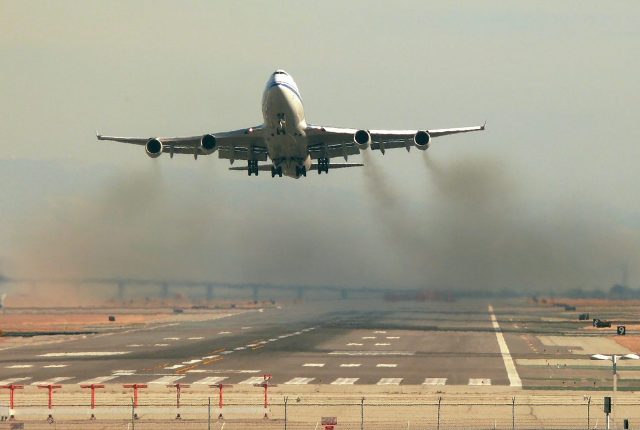The house of representatives has approved a piece of legislation that seeks to compensate residents around airports for what they suffer from noise pollution and aircraft emissions.
It should be noted that aircraft noise disrupts sleep and could increase the risk for cardiovascular disease of people living in the vicinity of airports.
Aircraft emissions, on the other hand, include known or suspected cancer-causing substances such as benzene, arsenic, and formaldehyde.
The exhaust may also contain harmful pollutants that are frequent components of urban smog, such as nitrogen oxides.
Global aviation is expected to generate an estimated 43 metric gigatons of carbon dioxide emissions through 2050, constituting almost 5 per cent of the global emissions allowable to keep global warming below 1.5 degrees Celsius.
The bill is titled ‘A Bill for an Act to Amend the Federal Airports Authority Act, Cap F5, Laws of the Federation of Nigeria, 2004 to empower the authority to recognise the environmental challenges facing all the communities around Nigerian airports and therefore engage and involve the communities in their development plans and for related matters’.
Sponsor of the bill and representative of Oshodi/Isolo II Federal Constituency, Lagos State, Mr. Ganiyu Johnson, explained that the bill was meant to empower the Federal Airports Authority of Nigeria (FAAN) to recognise the “environmental hazard facing the inhabitants of the Nigerian communities around the Nigerian airports due to the noise pollution, air pollution, waste and congestion occasioned by day to day air operation in the airport around their various communities.”
Johnson also noted that noise and emission had always been the major environmental issue in the field of aviation, which was primarily impacting residential communities close to airports.
Quoting the World Health Organisation (WHO), the lawmaker said aviation activities could cause several health-related problems both in the short and long-term.
He listed some of the hazards to include community annoyance, sleep deprivation, cardiovascular diseases, lung cancer, heart disease and mental health issues.
“Even though aircraft are becoming less noisy due to important technological improvements, the expected long-term increase in the number of flights – even after the COVID-19 pandemic – means that more effort from all stakeholders to reduce noise and emission in the airport’s surrounding areas will be crucial,” he added.




























































